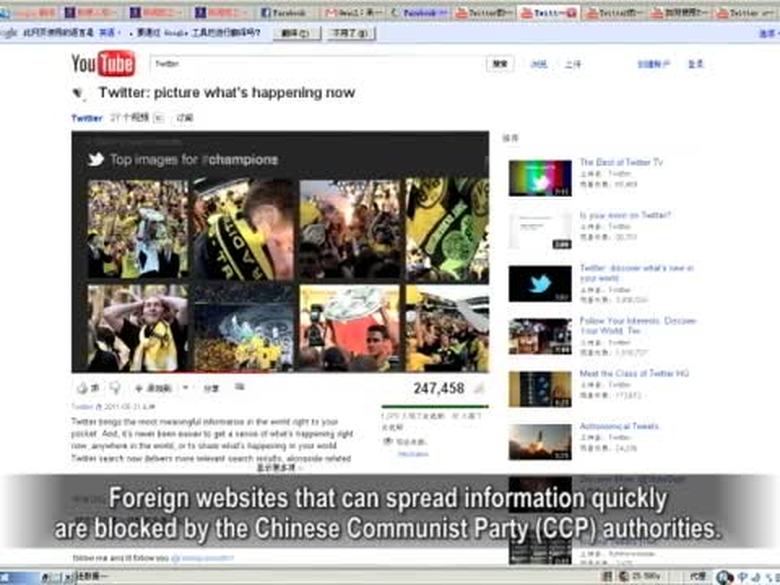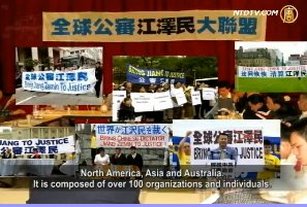【新唐人2011年7月19日訊】近日大陸媒體報導,由於黑心商品氾濫,民眾對「有機食品」的接受度高,就算多花點錢也願意買。不過中國現行有機食品的認證制度混亂,甚至有人在網上出售「有機產品標籤」,120塊錢就能印1萬張,連認證機構的標誌也可以印。
有機水果!有機蔬菜!只要貼上「有機」,價格馬上翻兩翻。目前中國農產品分為普通、無公害、綠色、有機四個等級,有機食品是最高級的,被要求絕對禁止使用農藥、化肥或除草劑等。
不過,18號《解放牛網》報導,在一家大型網站輸入「印刷有機標籤」幾個字,馬上跳出多條相關信息。比如上海一家包裝印刷廠,就專門提供客戶印有「中國有機產品 ORGANIC」的產品圖片。以直徑1釐米的有機產品標籤計算,120塊就能印1萬張。連認證機構的標誌也可以印。
報導指出,當局認監委網上列出的有機產品「認證機構」多達26家,每一家的圖標都不同。而巿面上所謂經過「認證」的有機食品,包裝盒上的標籤也是五花八門。一般民眾很難分辨多花錢買到的,到底是不是真正的有機食品?
《法制日報》記者在新疆維吾爾自治區烏魯木齊市也發現,大型超巿多存在有機產品標識不清的問題。比如一家超市的「有機產品」外包裝只標註公司的名稱和電話,甚至有每10公斤叫價八十到九十塊的「有機大米」,商家根本不清楚這些大米打哪兒來的,品牌名稱都沒有。
到底這些「有機食品」怎麼通過認證的?《法制日報》記者暗訪烏魯木齊市紅山路的一家環境保護科學研究所,問說有大米要辦「有機認證」怎麼處理?一位負責人說:簽三年的服務合同,認證費總價12萬,可以打七折。馬上可派人去實地考察。
另一家認證機構的工作人員告訴記者:只要交了錢,一般都可以幫辦有機認證。只要交1萬5(千)到2萬就可以搞定,包通過。只要談好價錢,領導就會馬上通知下去,讓相關人員到實地察看。其實這只是走一個過場,去現場的人回來後就開始寫報告。如果不敢出報告,領導會說:又不要你負責,你只要出報告就是了。其實市面上真正的有機產品很少。
報導還指出,烏魯木齊市農牧局農業處的段副處長也坦言,有機食品認證巿場是有點亂,政府部門的監管也比較薄弱。
《南方週末》也報導,枸杞產量佔全國60%的寧夏中寧縣,正面臨無法出口到歐盟和美國的問題。公開資料顯示,中寧縣的有機枸杞面積已達到4萬畝,年出口達5000噸。不過,真正獲得有機認證的種植土地不到3000畝,有機枸杞的產量最多不超過12噸。市場上打算出口到歐美的大量「有機枸杞」是甚麼?中寧的一家業者直接說:很多人的有機認證就是買來的!
寧夏林業局的資料顯示:2007年1月到2009年3月間,中國共有24批出口到美國的枸杞因為被驗出農藥殘留超標、亞硫酸鹽、色素、惡性雜質等,被美國食品和藥品管理局(FDA)拒絕入境。寧夏的「有機枸杞」也因此被禁止銷往美國。
新唐人記者曾耀賢、王明宇綜合報導。
Organic Food Labels for Sale in China
Media reports say that “black-hearted” or
poisonous products are flooding China,
thus, people are buying “organic food,”
even though it costs a whole lot more.
China』s organic food certification system
is in a chaotic state.
Labels of “organic food” are for sale on the Internet for
as little as $18.50 per 10,000 labels.
“Organic fruits! Organic vegetables!”
Once food is labeled "organic," its price naturally doubles.
China has a four-grade safety system for grading food products:
ordinary, pollution-free, green and organic.
Organic food is the highest level, which prohibits the use of
pesticides, fertilizers or herbicides.
However, according to Liberation Network,
one can find many websites in China selling “organic labels.”
For example, a Shanghai-based printing firm provides customers
with 10,000 “CHINESE ORGANIC” labels, for only $18.50.
The Certification and Accreditation Administration of China
authorizes 26 certificating agencies, each with a different logo,
thus, determining what is and is not "certified" organic food
becomes a daunting task for consumers.
The Legal Daily reported that the majority of organic products
sold in supermarkets in Urumqi, Xinjiang had confusing labels.
Some labels only contained the firm』s name and phone number.
Some “organic” rice sells for $13.00 for 22 pounds, yet there』s
no brand on the packaging and even its source is unclear.
So how did these "organic food" companies
obtain certification?
Several Legal Daily reporters wanted to find out,
so they visited an institute of environmental sciences in Urumqi.
One official introduced the certification process,
saying that
“For a three-year service contract we can offer
a 30% discount off of the original price of $18,500.
After that,
we will immediately send people to inspect the food.”
Another certification agency staff told reporters:
“As long as you pay, we can help with the process.
We guarantee certification for $2,300-$3,000 and once we』re paid,
officials will send their staff to inspect, which is normal procedure.
If the staff dares to not issue certification, officials will force them to,
saying, 『You are not liable. Just issue the certification.』
It is rare to find genuine organic food on the market!”
The report also says that
a deputy director of the Urumqi Bureau of Agriculture and
Animal Husbandry also admits that the certification
system is chaotic, due to weak government supervision.
According to Southern Weekend, the wolfberries
in Zhongning cannot be exported to the EU or U.S.
Zhongning has 6.590 acres of land with a yearly yield of
5,000 tons, however, less than 600 acres have organic certification.
The county produces less than 12 tons of
organic wolfberries annually.
A plantation owner in Zhongning simply admits,
“A lot of the organic certifications are simply bought!”
Ningxia Forestry Bureau』s data shows that from 2007 to 2009,
the U.S. rejected 24 shipments of wolfberries from China,
due to excessive pesticide, sulfites, malignant impurities, etc.
They were refused entry into the U.S. by FDA.
NTDTV reporters Zeng Yaoxian and Wang Mingyu
























